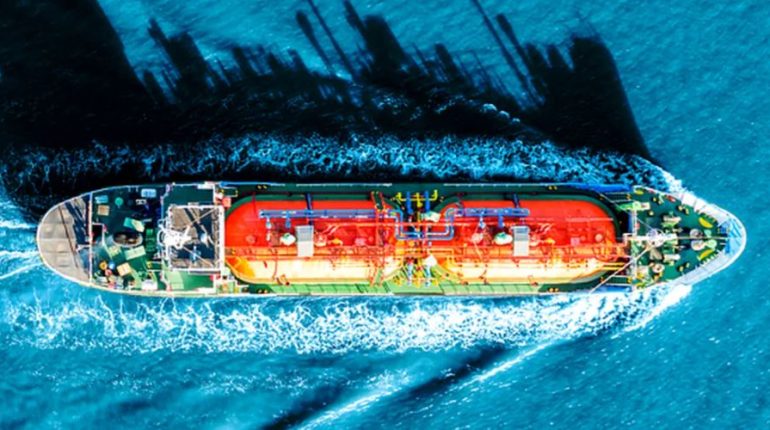
Is the economy facing another energy price shock?
Both Prime Minister Rishi Sunak and US President Joe Biden cited the global economic impact of Houthi attacks on Red Sea cargo ships in overnight statements as the reasoning behind military action.
The Treasury has modelled scenarios suggesting that disruption in the Red Sea could further shrink the UK economy, risking a recession.
The main fear in the Treasury’s analyses is of a rise of at least $10 per barrel in the international price of crude oil and a 25% increase in the price of natural gas.
Rises such as these have not actually materialised, so far, mainly because of the actions of Saudi Arabia – the major oil producing nation – in soothing global energy markets with price cuts.
The US and UK will hope that their overnight strikes on Iran-backed Houthi rebels will help reverse widespread delays and disruption to Red Sea trading routes, by re-establishing safe passage through the Bab-al-Mandeb Strait into the Suez Canal.
But, on the other hand, there is now also a clear pathway of escalation to a wider Middle East conflict.
Oil prices had fallen quite significantly before this, helping petrol prices drop below £1.40 a litre to a two-year low. And on Friday, while prices rose by 4%, they are still a relatively manageable $80 per barrel.
But disruption to cargo traffic risks spreading from the Red Sea across the Arabian Peninsula to the Strait of Hormuz, another key trading route.
On Thursday, Iran’s navy seized a US-linked oil tanker in the Gulf of Oman as part of a long-running row between the two nations.
If that situation also escalates, another energy shock is possible with the risk of $100 per barrel of oil on the horizon – just as the impact of the Ukraine crisis was fading.
Meanwhile, Europe is now much more physically dependent on flows of shipped gas from Qatar, after supplies from Russian pipelines were stopped.
European energy majors have been queuing up to do deals with Doha after Russian taps were turned off.
Even if physical supplies could be made up from the US – now the world largest exporter of liquified natural gas – the price would surge on any disruption in the Gulf.
A serious escalation could further disrupt the global economy, entrenching inflation, just as the world’s central banks were pondering turning points and cutting interest rates.
It would also mark clear parallels with the 1970s, when two separate geopolitical energy shocks from the Arab-Israeli War and the Iranian Revolution led to prolonged inflation over several years.
So action taken to protect the world economy, is even on that basis alone, not without its risks.

